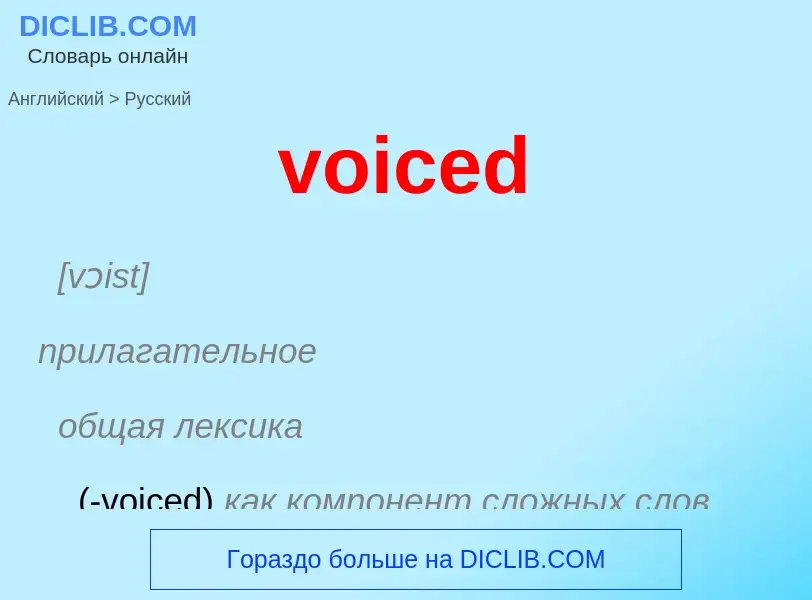Traducción y análisis de palabras por inteligencia artificial ChatGPT
En esta página puede obtener un análisis detallado de una palabra o frase, producido utilizando la mejor tecnología de inteligencia artificial hasta la fecha:
- cómo se usa la palabra
- frecuencia de uso
- se utiliza con más frecuencia en el habla oral o escrita
- opciones de traducción
- ejemplos de uso (varias frases con traducción)
- etimología
voiced - traducción al Inglés
[vɔist]
прилагательное
общая лексика
(-voiced) как компонент сложных слов имеющий такой-то голос
фонетика
звонкий
голосовой (о согласном)
[sju:sə'reiʃ(ə)n]
существительное
книжное выражение
шёпот
лёгкий шорох
шелест
редкое выражение
шепот
легкий шорох
Definición
Wikipedia
Voice or voicing is a term used in phonetics and phonology to characterize speech sounds (usually consonants). Speech sounds can be described as either voiceless (otherwise known as unvoiced) or voiced.
The term, however, is used to refer to two separate concepts:
- Voicing can refer to the articulatory process in which the vocal folds vibrate, its primary use in phonetics to describe phones, which are particular speech sounds.
- It can also refer to a classification of speech sounds that tend to be associated with vocal cord vibration but may not actually be voiced at the articulatory level. That is the term's primary use in phonology: to describe phonemes; while in phonetics its primary use is to describe phones.
For example, voicing accounts for the difference between the pair of sounds associated with the English letters "s" and "z". The two sounds are transcribed as [s] and [z] to distinguish them from the English letters, which have several possible pronunciations, depending on the context. If one places the fingers on the voice box (i.e. the location of the Adam's apple in the upper throat), one can feel a vibration while [z] is pronounced but not with [s]. (For a more detailed, technical explanation, see modal voice and phonation.) In most European languages, with a notable exception being Icelandic, vowels and other sonorants (consonants such as m, n, l, and r) are modally voiced.
Yidiny has no underlyingly voiceless consonants, only voiced ones.
When used to classify speech sounds, voiced and unvoiced are merely labels used to group phones and phonemes together for the purposes of classification.

